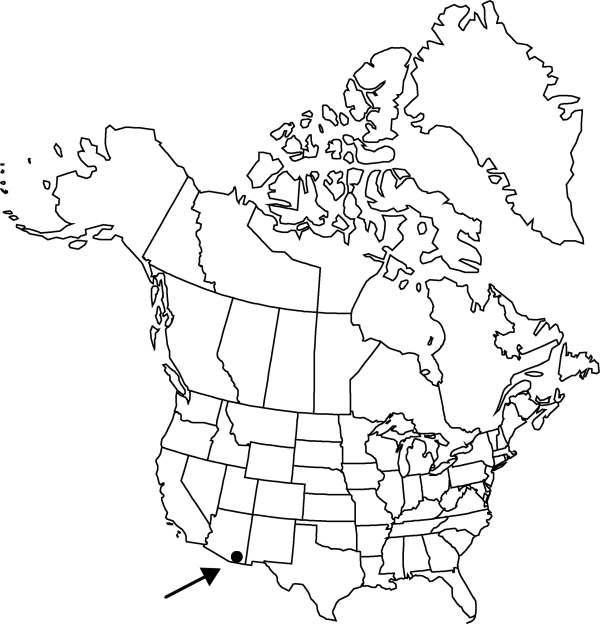Echinocereus pseudopectinatus
Bradleya 7: 74. 1989.
Plants unbranched (rarely few branched). Stems erect, short cylindric, to 20 × 4–6 cm; ribs 13–19, crests slightly undulate; areoles 4–8 mm apart. Spines 13–17 per areole, stiff and straight, white, pink, or gray, becoming gray with dark tips; radial spines 12–17 per areole, appressed to spreading, 2–12 mm; central spines (0–) 1–4 per areole, projecting, 1–4 mm. Flowers 5–8 × 7–10 cm; flower tube 15–25 × 8–20 mm; flower tube hairs 3–5 mm; inner tepals purplish-pink, darker proximal portion and midstripes, 35–45 × 10–22 mm, tips relatively thin and delicate; anthers dark yellow; nectar chamber to 3 mm. Fruits dark green, brownish tinged, 15–23 mm, pulp white.
Habitat: Chihuahuan Desert, desert scrub, mostly semidesert grasslands, rocky slopes, mostly igneous substrates
Elevation: 1200-1400 m
Distribution

Ariz., Mexico (Sonora).
Discussion
Misidentifications of Echinocereus pseudopectinatus were the basis for Arizona reports of E. pectinatus and E. dasyacanthus, which belong to an unrelated species group from the Chihuahuan Desert. Formerly, E. pseudopectinatus was considered conspecific with E. bristolii W. T. Marshall, a closely related endemic species of Sonora, Mexico.
Selected References
None.